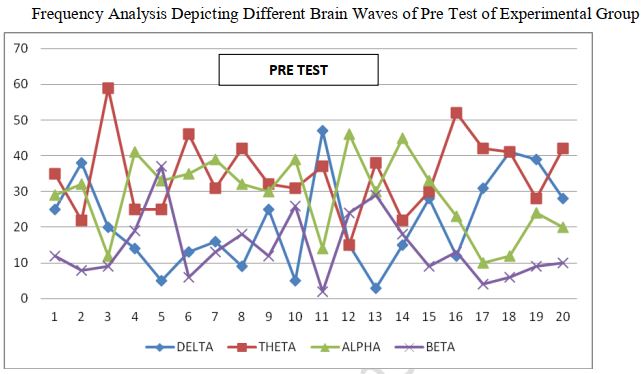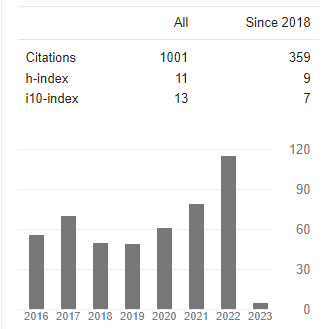EFFECT OF MEDITATION ON BALANCE ABILITY
Abstract
The purpose of the study was to investigate the effect of meditation on balance ability. Meditation is a practice in which an individual trains the mind or induces a mode of consciousness, either to realize some benefit or as an end in itself.. Despite its popularity, little is known about the neural mechanisms by which meditation works, several electroencephalogram (EEG) studies have reported changes in spectral and frequency analysis during meditation inspired by techniques that focus on concentration. The aim of this study was to examine EEG changes associated with meditation practice and whether these changes in EEG pattern were associated with the occipital region. Frequency analysis was used to analysis investigate the composition of an EEG signal. Forty students studying were randomly selected as the subjects for the study. The age of the subjects ranged from 21 to 30 years. The subjects were assigned at random to experimental and control group; each group consisting of twenty students. The study was conducted for a period of eight weeks. The present study examined EEG changes during meditation. The investigational paradigm involved 15-20 minutes of meditation, where the subjects were asked to close their eyes and adopt their normal meditation. Two groups comprising of twenty-five subjects each were formed i.e. experimental Group and control group. The experimental group was given meditation in the morning session time and no meditational training was given to control group. Each subject of Experimental group was learning concentrative Meditation. The data on Electroencephalogram (EEG) and balance ability was collected the data before and after meditational training to measure the effect of meditation. Data were analyzed by using analysis of covariance at 0.05 level of significance. On the basis of EEG analyses it reported increase alpha activity in practice meditational group as compared to control group. The findings produced increased occipital alpha power in experimental group than the control group., it also observed in increased theta power across multiple cortical regions. Further Analysis of co-variance results revealed the insignificant difference found in balance ability (2.650) and in waves the Delta, Theta and Alpha waves and insignificant difference (.527) found in Beta waves. These results suggest that meditation provides no improvement in balance ability. EEG findings from this study suggest that concentrative meditation techniques improves theta and alpha EEG patterns significantly
Downloads
References
Retrieved on June16,2012 [from http://en.wikipedia.org/wiki/Meditation#History]
Lajpat Rai, W.Selvamurthy and R.C Sawhney, Meditation: Techniques And Their Scientific Evaluation, (Haryana, Anubhav Publications,1998),p.4
Shiv Bhushan Sharma, Physiology of Kundalini-Yoga: Power Spectrum Analysis of Electroencephalogram.
JN Johan, K Chanda and S.Sultan Akhtar, Psychology of Sports: The Indian perspective, (New Delhi, Friends Publication, 1993).
RK Wallace, H Benson ,AF Wilson, “A Wakeful Hypometabolic Physiologic State”, American Journal of Physiology, Vol. 221, No. 3 (September1971
Peter Harrrsion, A Complete Guide Of Discovering Meditation,(London, Caxton Ed ,2001 http://en.wikipedia.org/wi
Shafqit Hussain Shah, Physiological factors and performance gain through high altitude training, International Journal of Behavioral Social and Movement Sciences, Vol.04,July2015,Issue03,p1-6















